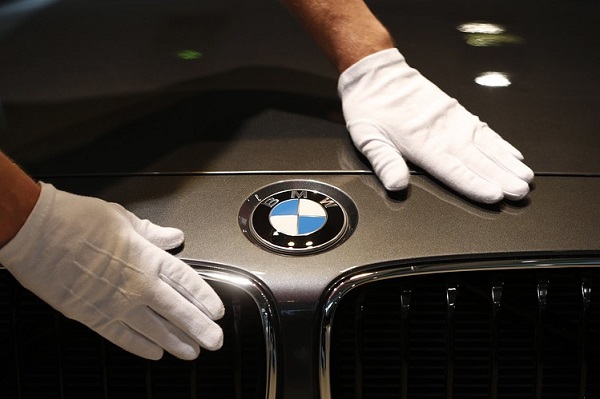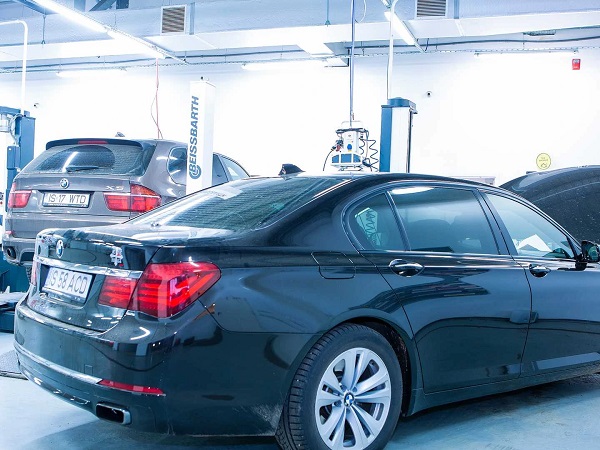The BMW spare parts and the cost of repairing your BMW can be quite expensive, especially if you’re not sure where to start. Thankfully, fixing a BMW isn’t nearly as difficult as it seems. Even if you don’t have much mechanical experience, you can take care of most problems with a little bit of research and a few well-chosen tools. And the best part? Most repairs for your car won’t set you back more than around $100-$200. That said, the higher the KM mark on your car (kilometres), the more costly repairs become. But don’t let that discourage you from taking care of your car – instead, look into getting some professional help when necessary.

Do you have a broken BMW spare part that needs fixing? Are you worried about repairing the car at the right cost? Well, BMW spare parts are not that expensive and can be repaired on a low budget as well. If your BMW spare parts aren’t functioning well, it’s best to get them fixed as soon as possible. The sooner you get it fixed, the sooner you can start driving again and the less money you will waste trying to get it fixed.
Did you know Amazon offers the best prices for BMW spare parts? The Good news is: it will be shipped right to your doorstep. Here is a link to affordable BMW spare parts on Amazon today
BMW Troubleshooting: What to Check First
Before you dive into the nitty-gritty of diagnosing and fixing your BMW, it’s a good idea to first make sure you don’t miss anything major, like a blown engine or major transmission problems. So, what should you check first? For starters, make sure all of your fluids are full and topped up. That includes your tires, windshield washer fluid, brake fluid, coolant, and transmission fluid. Next, you should also make sure your engine oil is at the right level, as this could have a big impact on how your car performs. Most cars have an oil “recommended” level and an “optimal” level that’s supposed to be maintained. So, make sure your car is operating at its optimal level. If you’re not sure, ask your mechanic to check your oil level for you.
Do you need the perfect oil for your BMW car engine? Right here is where you can get it.
Basic Repairs You Can Do Yourself
If you’re not sure if you have the money or capability to fix your BMW, you can always take care of some basic repairs yourself. This can be a good way to save money and fix small problems before they get worse, such as a loose boot or a damaged exhaust. If you’re not sure where to start, our list below should give you a few ideas. On Your Engine: If your engine is starting to make a funny noise, it may be time to have it serviced or replaced. Similarly, if you notice that your engine performance is starting to suffer (e.g. it takes longer to accelerate, is harder to start, or starts skipping), we recommend getting it serviced as soon as possible. If your engine is starting to make a funny noise, it may be time to have it serviced or replaced. Similarly, if you notice that your engine performance is starting to suffer (e.g. it takes longer to accelerate, is harder to start, or starts skipping), we recommend getting it serviced as soon as possible. Your Exhaust: Since your exhaust is attached to your engine and is exposed to high temperatures, any damage to it can cause serious harm. So, if you notice that your exhaust is oxidized or damaged, we recommend taking care of it as soon as you can.

Premium Repairs You Should Probably Hire A Mechanic For
Most of the time you can take care of your BMW’s premium repairs yourself, or at the very least save some serious cash. However, there are a few repairs that are best handled by a trained professional. This includes repairs related to your transmission (e.g. a bad transmission will severely impact your fuel economy), suspension, braking, and steering. And, while these repairs can often be done by a DIY-er, they’re best done by a trained mechanic. If you’re not sure if you should tackle any of these repairs yourself, we recommend taking it to a mechanic. Similarly, if you’ve recently had one of these repairs done, we also recommend having your car tuned up again as soon as you can to ensure your suspension and braking are working correctly.
Major Repairs That Should Be Towed or Trained Mechanic For
Now, you’re diving into the more serious repairs. And, while most of these repairs can be done by a DIY-er, we recommend taking care of them as soon as possible. This is because the longer they go without being addressed, the more likely they are to become much more expensive to fix in the future. And, while these repairs are most likely going to be expensive, they are necessary and worth it. So, what are these “major repairs” we’re talking about? In short, these repairs are any repairs that involve replacing any major parts on your car, like your engine, transmission, suspension, brakes, steering, exhaust, and more. Plus, these repairs are also the repairs that will have the most impact on the way your car drives.

Don’t Forget Tires and Wheels
Finally, we’d like to remind you not to forget about your tires and wheels. Like your brakes and steering, your tires and wheels are major components that should be serviced, repaired, or replaced every 50-75,000 kilometres (31-47 miles) as soon as you have the money for it. This is because tires and wheels are subject to the same wear and tear as your engine and transmission, and so they should be serviced regularly, just like your engine and transmission.
Summary
BMW is a sophisticated car brand with a complicated system. All these parts, while functioning fine on their own, together create a complete car. Therefore, maintenance is important in order to keep your car functioning well and safe. The most common and expensive repairs are transmission, brakes, and tires. If you notice any of these issues, schedule a routine maintenance for your car with your mechanic.
